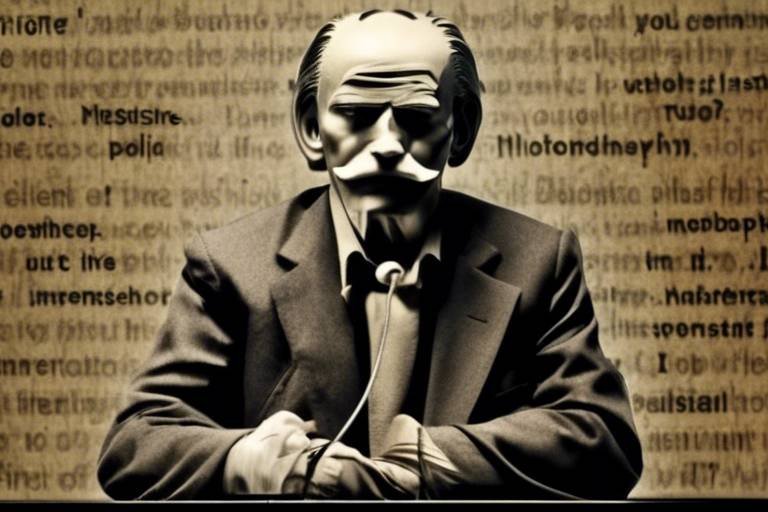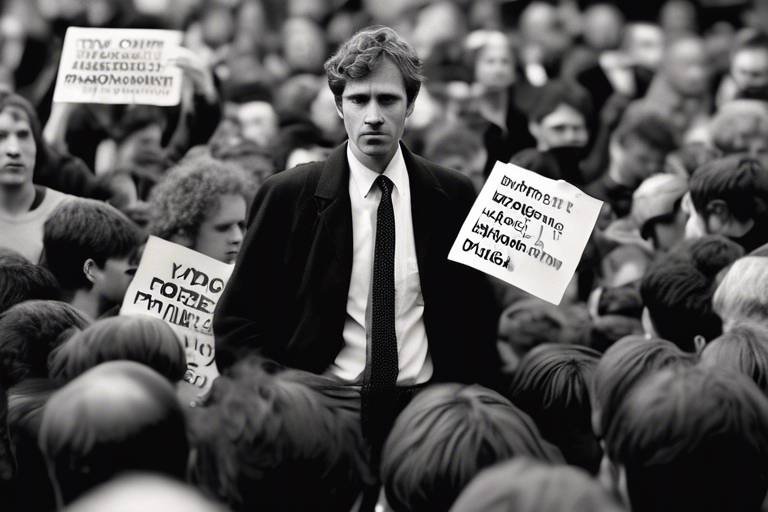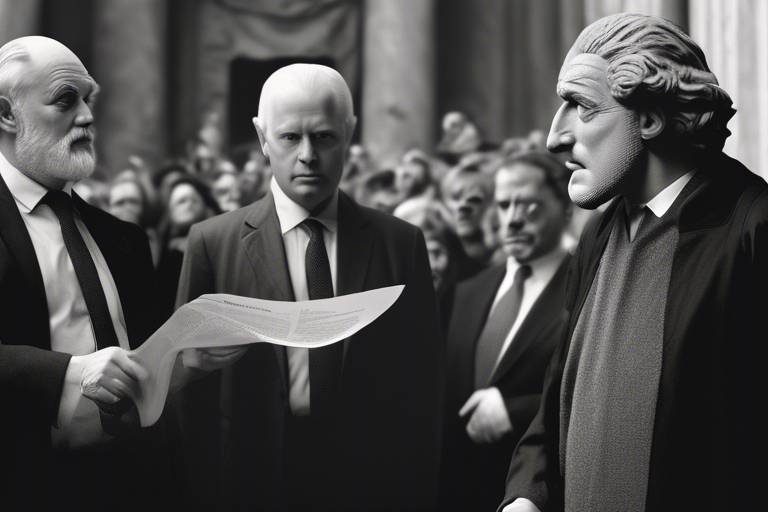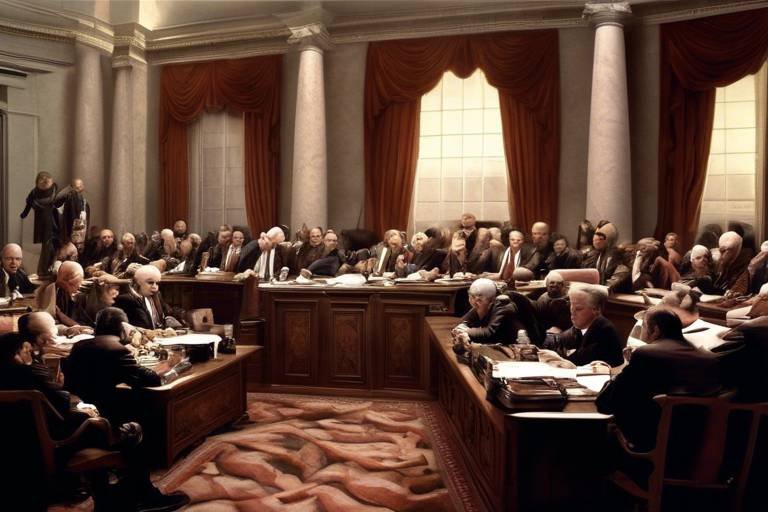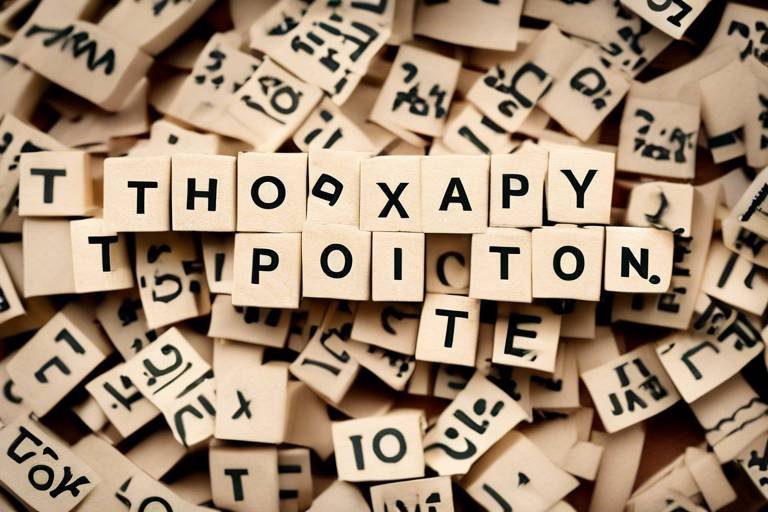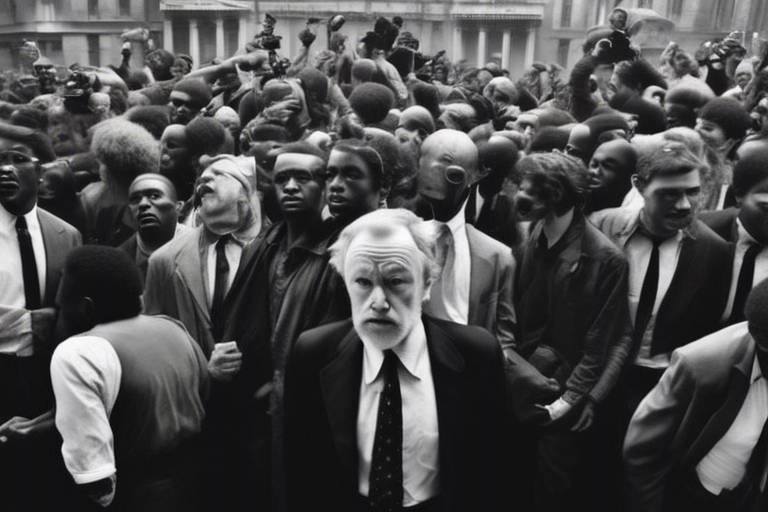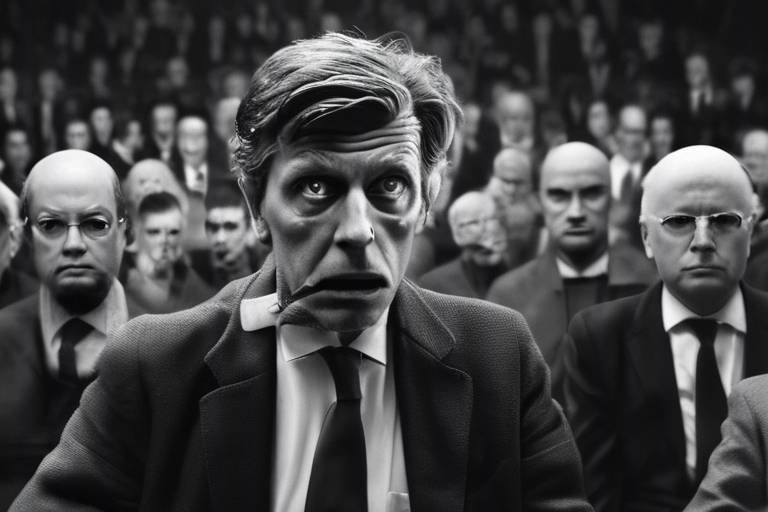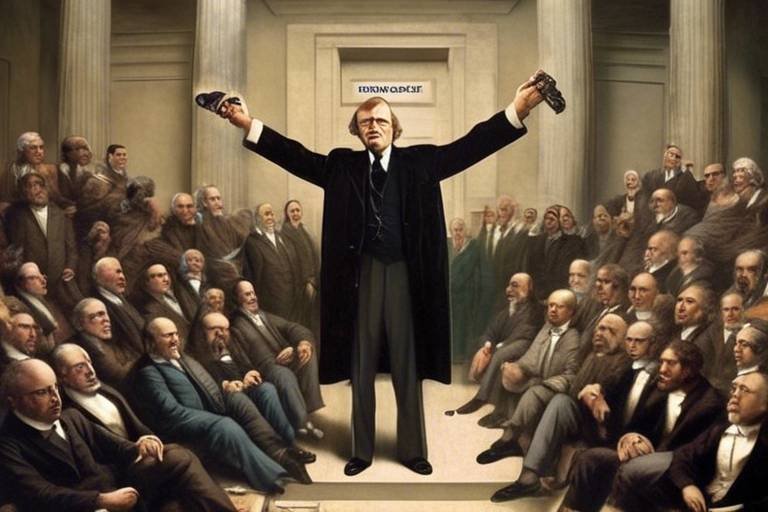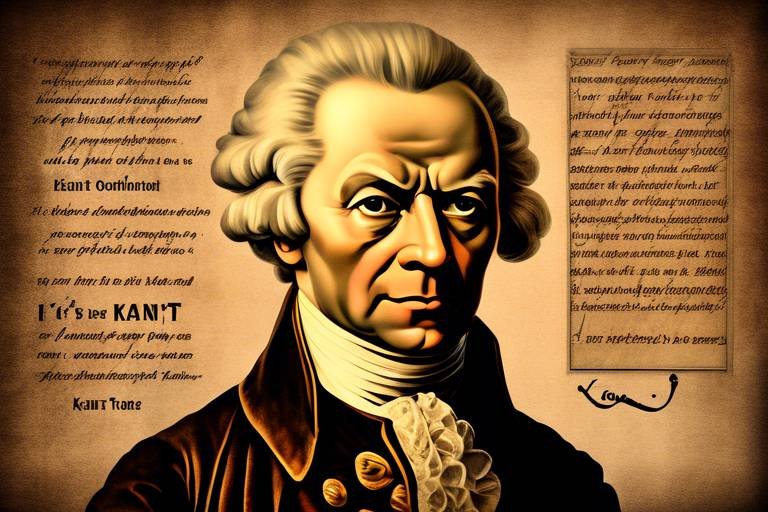Philosophy and the Politics of Internet Censorship
In today's digital age, the internet serves as a vast ocean of information, where ideas flow freely and connections are made across borders. However, lurking beneath this surface of connectivity is a complex web of censorship that raises profound philosophical and political questions. What drives governments and organizations to restrict access to information? Is there ever a justifiable reason to limit freedom of expression? These questions are not just academic; they impact our daily lives and shape the very fabric of our societies.
The essence of internet censorship lies in the delicate balance between freedom and control. On one hand, the internet is heralded as a platform for free speech and democratic discourse. On the other, it is viewed as a potential breeding ground for misinformation, hate speech, and threats to national security. This duality creates a rich tapestry of philosophical debates, where differing ideologies clash over the definition and limits of acceptable expression.
At its core, the politics of internet censorship reflects deeper societal values and priorities. For instance, some argue that censorship is necessary to protect vulnerable populations from harmful content, while others contend that such measures infringe upon fundamental rights. This ideological struggle often manifests in legislation and policy-making, leading to a patchwork of regulations that vary significantly from one country to another.
Moreover, the implications of censorship extend beyond the individual to affect democracy itself. When governments exert control over online content, they not only limit access to information but also stifle dissent and inhibit public discourse. This raises a critical question: can a society truly be democratic if its citizens are deprived of the information necessary to make informed decisions? The answer, many would argue, is a resounding no.
As we delve deeper into the philosophical underpinnings of internet censorship, it becomes clear that the stakes are high. The debate is not merely about what can or cannot be said online; it's about the very principles of freedom, justice, and the role of government in our lives. Understanding these dynamics is crucial for anyone who wishes to navigate the complexities of the digital world and advocate for a more open and equitable internet.
Censorship raises significant ethical questions about the balance between protecting society and preserving individual freedoms. This section delves into the moral implications of restricting information.
Governments play a crucial role in regulating online content. This part discusses the motivations behind governmental censorship and its effects on democracy and civil liberties.
Various justifications are often presented for censorship, including national security and public morality. This subsection examines these arguments and their philosophical foundations.
The justification of censorship for national security often leads to controversial policies. This section analyzes how governments implement these measures and their consequences for society.
Censorship is frequently defended as a means to uphold public morality. This part explores the philosophical arguments surrounding moral protection and the implications for freedom of speech.
Censorship can have far-reaching consequences for society, including stifling dissent and innovation. This subsection evaluates the broader impacts of censorship on culture and knowledge.
Different philosophical perspectives offer varied insights into the concept of free speech. This section discusses key theories and their relevance to internet censorship debates.
Utilitarianism suggests that actions should maximize overall happiness. This subsection examines how this theory applies to the justification of censorship and its societal outcomes.
Libertarian philosophy emphasizes individual freedom and minimal government intervention. This part discusses how libertarian principles challenge censorship practices and advocate for unrestricted access to information.
- What is internet censorship? Internet censorship refers to the control or suppression of what can be accessed, published, or viewed on the internet by governments or other authorities.
- Why do governments censor the internet? Governments may censor the internet for various reasons, including national security, public morality, and to prevent the spread of misinformation.
- How does censorship affect free speech? Censorship can limit free speech by restricting individuals' ability to express their ideas and access diverse viewpoints, which is essential for a healthy democracy.
- What are the ethical implications of censorship? The ethical implications of censorship involve balancing the need to protect society from harm while ensuring that individual freedoms are respected and upheld.

The Ethical Dilemmas of Censorship
Censorship is a complex issue that often stirs up heated debates, particularly when it comes to the ethical implications of restricting information. At its core, censorship raises profound questions about the balance between protecting society and preserving individual freedoms. Imagine a tightrope walker, skillfully navigating a thin line between two towering skyscrapers. On one side, you have the need for security and societal well-being; on the other, the fundamental right to free expression. The challenge lies in maintaining equilibrium without tipping too far in either direction.
One of the most pressing ethical dilemmas involves the question: Who gets to decide what is censored? This question is not merely theoretical; it affects real lives and societal structures. Different stakeholders, including governments, corporations, and even individuals, may have conflicting interests. For instance, a government may censor content to promote national security, while a tech company might restrict information to protect its brand image. The result is a murky landscape where the lines between protection and oppression become blurred.
Moreover, the implications of censorship can extend far beyond the immediate act of restricting information. Consider the chilling effect it can have on creativity and innovation. When individuals fear that their voices might be silenced, they are less likely to express controversial or novel ideas. This stifling atmosphere can lead to a homogenization of thought, where only the 'acceptable' ideas thrive. As a society, we risk losing valuable perspectives that could challenge the status quo and drive progress.
Additionally, we must grapple with the moral responsibility that comes with censorship. While some argue that it is necessary to shield vulnerable populations from harmful content, others contend that such actions can patronize individuals, undermining their ability to make informed choices. This dilemma is particularly relevant in discussions about protecting minors from inappropriate material. Should the responsibility lie with parents, schools, or the government? Each answer carries its own ethical implications.
In light of these dilemmas, it becomes crucial to consider alternative approaches to censorship. Instead of outright bans, could we foster environments that encourage critical thinking and media literacy? By empowering individuals with the tools to discern credible information, we can cultivate a society that values free expression while still addressing valid concerns about harmful content.
Ultimately, the ethical dilemmas surrounding censorship require us to ask tough questions and engage in meaningful dialogue. As we navigate this complex terrain, it's essential to keep in mind the delicate balance between safeguarding society and upholding the freedoms that define it. Just like the tightrope walker, we must tread carefully, ensuring that our efforts to protect do not inadvertently lead to oppression.
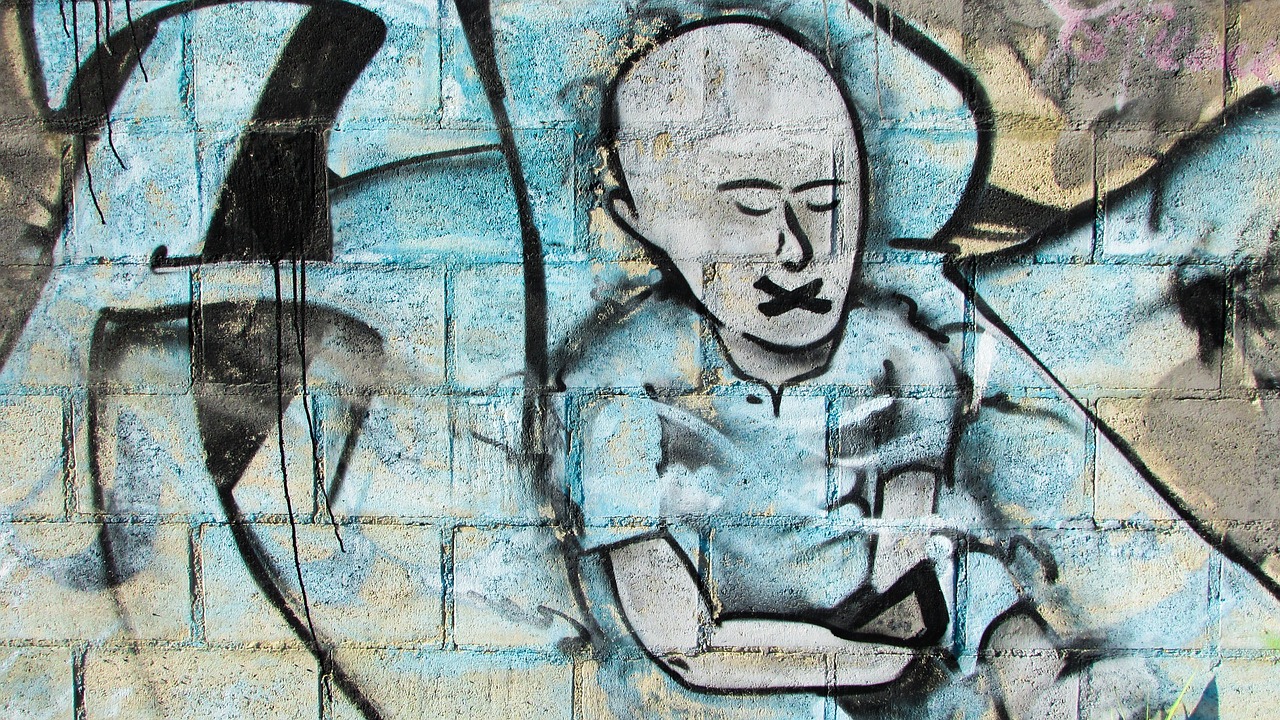
The Role of Government in Censorship
When we think about the internet, it often feels like a vast ocean of information, where waves of data crash upon the shores of our screens. But lurking beneath the surface, governments around the world are like fishermen, casting nets to catch what they deem inappropriate or dangerous. The role of government in censorship is multifaceted and often controversial, raising questions about who gets to decide what we can see and what remains hidden. Are they protecting us, or are they simply stifling our freedom?
Governments typically justify their censorship efforts through various lenses, including national security, public morality, and the protection of social order. Each of these motivations carries its own philosophical implications, which can greatly influence how policies are shaped and enforced. For instance, when a government claims to act in the name of national security, it often invokes a sense of urgency and fear, suggesting that certain information could lead to societal harm or even chaos. This can lead to a slippery slope where the definition of "security" expands, potentially infringing on individual rights.
Moreover, the political landscape of a country significantly affects how censorship is implemented. In democratic societies, there is usually a more vigorous debate about censorship practices, as citizens demand transparency and accountability from their leaders. However, in authoritarian regimes, the narrative shifts dramatically; censorship becomes a tool for oppression, where the government seeks to maintain control by silencing dissent and restricting access to diverse viewpoints. This leads us to ponder: how much power should governments have in regulating our digital interactions?
To understand the role of government in censorship, we must first examine the justifications that are frequently presented. These often include:
- National Security: Protecting citizens from threats, both internal and external.
- Public Morality: Maintaining societal values and standards.
- Preventing Misinformation: Ensuring that false information does not spread and cause harm.
Each of these justifications comes with its own set of philosophical challenges. For example, while national security is a legitimate concern, it raises the question: how do we balance safety with the right to know? Similarly, the idea of protecting public morality can lead to a narrow definition of what is considered acceptable, potentially marginalizing voices that don't fit the mainstream narrative.
When it comes to national security, governments often claim that censorship is necessary to prevent sensitive information from falling into the wrong hands. This can include anything from military secrets to data that could incite violence. However, the implementation of such measures can be quite draconian. For instance, many countries employ broad surveillance practices that invade personal privacy under the guise of protecting the public. The consequences can be profound, leading to a culture of fear where individuals self-censor their thoughts and opinions, stifling genuine discourse.
On the other hand, the argument for protecting public morality often hinges on the belief that certain content can corrupt or harm societal values. This perspective can be particularly prevalent in discussions surrounding issues such as pornography, hate speech, or even political dissent. While the intention behind this type of censorship may be to create a more harmonious society, it raises ethical questions about who gets to define "morality." Are we allowing a few to dictate the beliefs and values of many?
In conclusion, the role of government in censorship is a complex interplay of ethical dilemmas, political motivations, and societal implications. As we navigate the digital age, it becomes increasingly important to critically assess the policies that govern our online experiences. Are we sacrificing our freedom for the illusion of safety? The answers may not be straightforward, but they are essential to the ongoing dialogue about the future of free expression in the digital realm.
- What is the main role of government in internet censorship? Governments regulate online content to protect national security, uphold public morality, and prevent misinformation.
- How does censorship affect freedom of expression? Censorship can limit individuals' ability to share ideas and access diverse viewpoints, ultimately stifling free expression.
- Are there any justifications for censorship? While some justifications exist, such as national security and public morality, they often come with ethical dilemmas regarding personal freedoms.
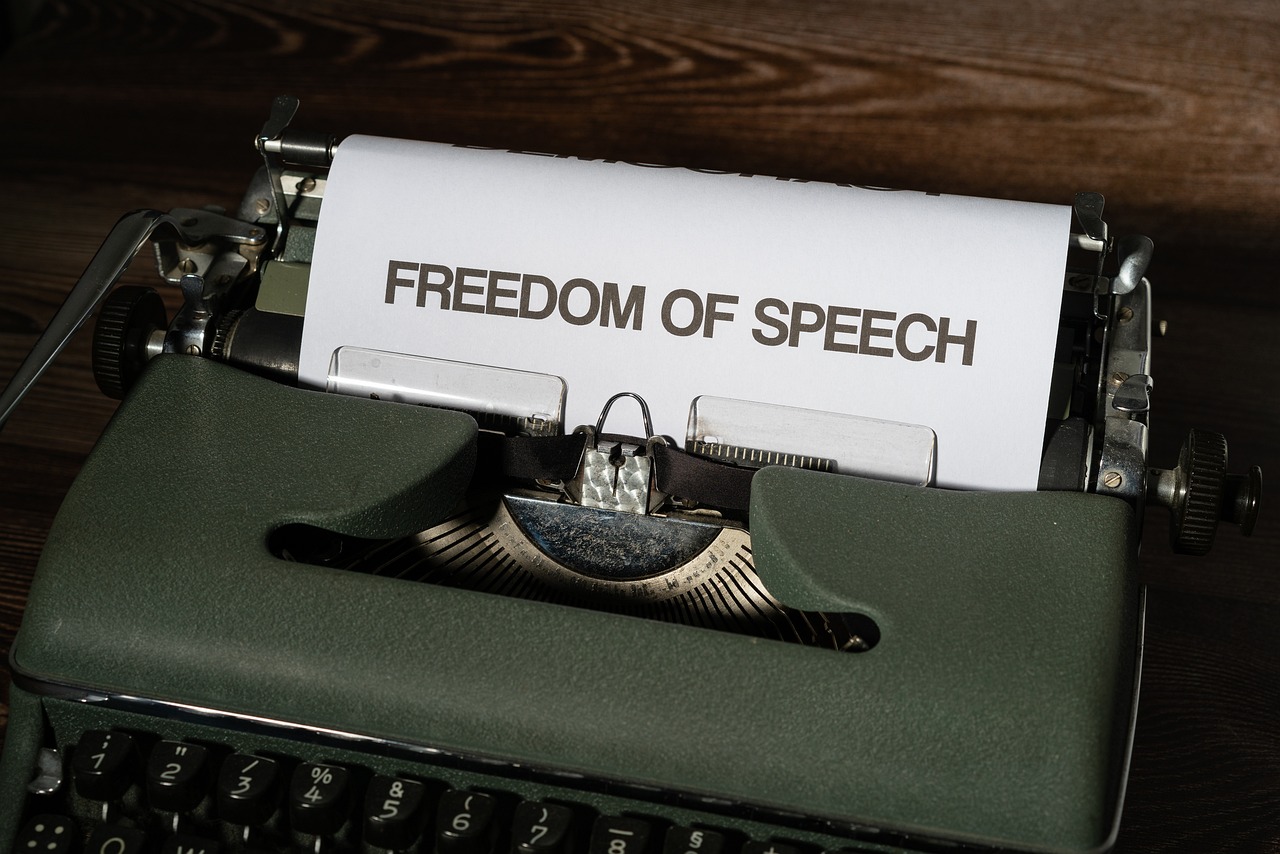
Justifications for Censorship
Censorship is often defended through various justifications that resonate with both the public and policymakers. These justifications can be seen as a balancing act between the need for social order and the desire for individual freedom. At its core, the debate about censorship revolves around whether the state has the right to restrict information for the greater good. One of the most common justifications is the notion of national security, where governments argue that certain information could jeopardize the safety of the state or its citizens. This leads to policies that can sometimes infringe on personal liberties in the name of protecting the collective.
Another frequently cited reason for censorship is the need to protect public morality. Proponents argue that some content—be it violent, explicit, or misleading—can have detrimental effects on societal values and norms. For instance, many believe that restricting access to certain media can shield vulnerable populations, such as children, from harmful influences. However, this raises a crucial question: who gets to define what constitutes "morality"? This subjective nature of morality makes it a slippery slope when used as a justification for censorship.
Furthermore, the economic implications of censorship cannot be ignored. In some cases, governments may impose restrictions to protect local industries from foreign competition or to maintain a favorable political climate for business. This creates a paradox where censorship is wielded as a tool for economic gain, often at the expense of free expression. The motivations behind these justifications can vary widely, leading to a complex web of ethical dilemmas that challenge the very essence of freedom of speech.
To illustrate these points, consider the following table that summarizes the common justifications for censorship along with their potential implications:
| Justification | Description | Implications |
|---|---|---|
| National Security | Restricting information to protect the state and its citizens. | Can lead to abuse of power and erosion of civil liberties. |
| Public Morality | Shielding society from content deemed harmful or immoral. | Subjective definitions of morality can lead to widespread censorship. |
| Economic Protection | Limiting foreign content to support local businesses. | Can create monopolies and stifle innovation. |
In conclusion, while justifications for censorship may appear valid on the surface, they often mask deeper philosophical and ethical questions. As we navigate the digital age, the challenge lies in finding a balance that protects both societal interests and individual freedoms. Are we willing to sacrifice our right to free speech for the sake of security or morality? The answers are as complex as the justifications themselves, and they demand ongoing dialogue and scrutiny.
- What is censorship? Censorship is the suppression of speech, public communication, or other information that may be considered objectionable or harmful by authorities.
- Why do governments censor information? Governments may censor information for reasons such as national security, protecting public morality, or economic interests.
- Is censorship ever justified? The justification for censorship is a contentious issue; while some argue it protects society, others believe it infringes on individual freedoms.
- How does censorship impact society? Censorship can stifle dissent, limit access to information, and hinder cultural development, leading to a less informed public.
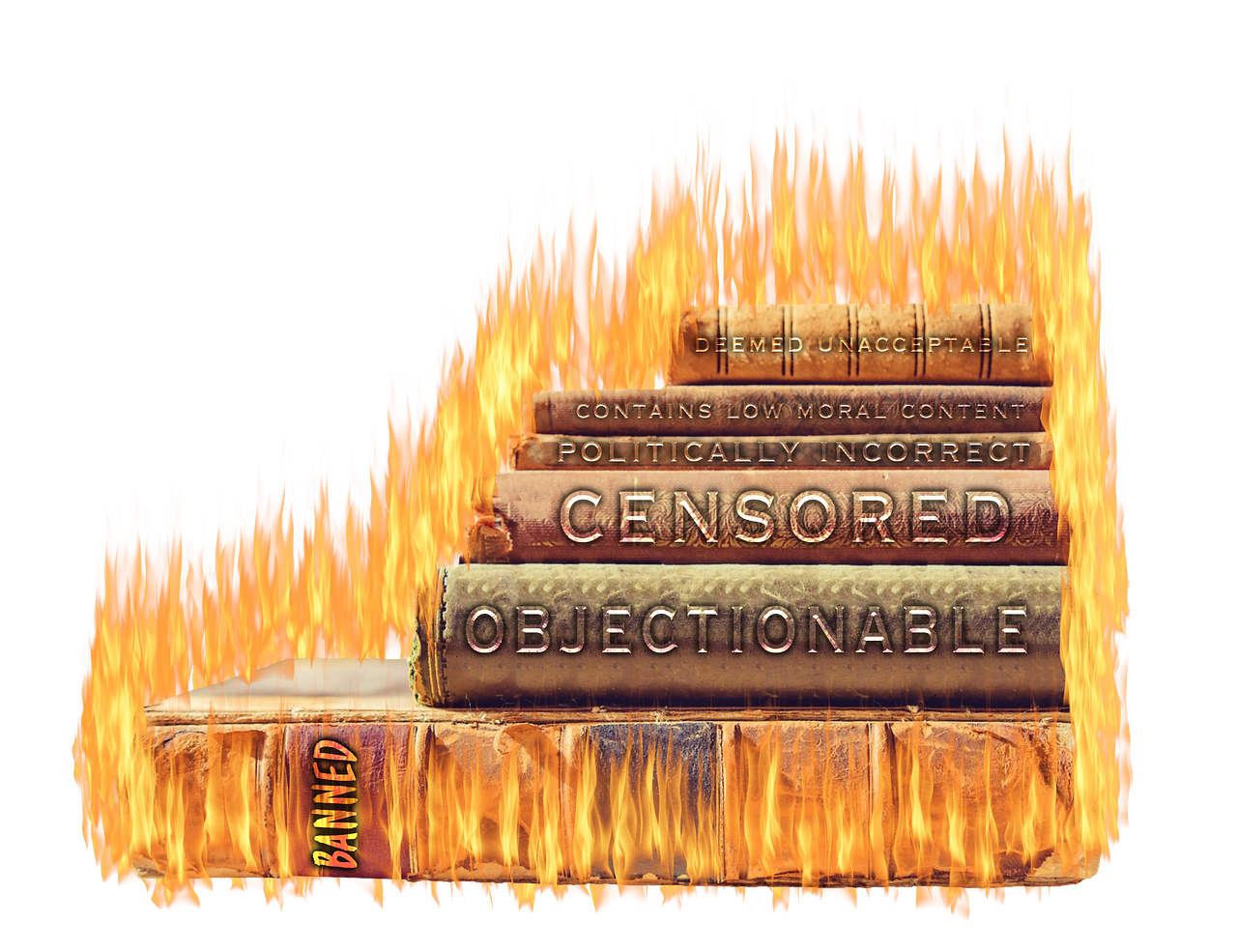
National Security Concerns
The justification for internet censorship on the grounds of national security is a contentious issue that often ignites passionate debates. Governments frequently argue that restricting access to certain information is essential to protect citizens from threats, be they domestic or foreign. However, the implications of such censorship can be profound, raising questions about the very fabric of democracy and individual freedoms. When a government claims to act in the name of national security, it often wields a powerful tool that can be misused to suppress dissent and control the narrative.
Take, for instance, the argument that censoring content related to terrorism can prevent radicalization. While there is a grain of truth in this assertion, it can lead to a slippery slope where legitimate discourse is stifled in the name of safety. The challenge lies in distinguishing between genuine threats and mere expressions of opinion or criticism. In many cases, the line is blurred, resulting in a landscape where fear overrides freedom.
Moreover, the implementation of censorship measures under the guise of national security often lacks transparency. Governments may classify information as sensitive without providing sufficient justification, leading to a culture of secrecy. This lack of accountability can foster distrust among citizens, as they are left in the dark about the reasons behind such restrictions. The question then arises: how can a society remain free and open if its government operates behind a veil of secrecy?
To illustrate the impact of national security-related censorship, consider the following table that outlines some common justifications and their potential consequences:
| Justification | Potential Consequences |
|---|---|
| Preventing Terrorism | Suppression of dissenting voices; potential violation of human rights |
| Protecting State Secrets | Increased government control over information; lack of public trust |
| Avoiding Public Panic | Stifling of legitimate public discourse; misinformation |
As we navigate through these complex waters, it becomes clear that the implications of national security-based censorship extend far beyond the immediate concerns of safety. The balance between protecting citizens and preserving the fundamental right to free expression is a delicate one. It requires constant vigilance and public discourse to ensure that the scales do not tip too far in favor of control at the expense of freedom.
In conclusion, the issue of national security and internet censorship is not merely a technical or legal matter; it is a philosophical dilemma that challenges our understanding of freedom, safety, and the role of government. As citizens, we must remain aware of these dynamics and advocate for transparency and accountability in any measures that seek to limit our access to information.
- What is the primary justification for internet censorship related to national security?
Governments often claim that censoring certain information is necessary to prevent terrorism and protect citizens from potential threats.
- How does censorship affect freedom of expression?
Censorship can significantly limit the ability of individuals to express their opinions and engage in open discourse, leading to a culture of fear and repression.
- What are the potential consequences of government censorship?
Consequences can include a lack of public trust, suppression of dissent, and an overall decrease in democratic engagement.

Protecting Public Morality
The concept of through censorship is often viewed as a noble endeavor, yet it raises a multitude of complex questions. At its core, this justification for censorship suggests that there are certain ideas, images, or expressions that are deemed harmful to societal values and norms. But who gets to decide what constitutes morality? This is where things get tricky. The subjective nature of morality means that different cultures, communities, and individuals may have vastly different views on what is acceptable. For instance, what one group considers a protective measure for public morality, another might see as a blatant infringement on personal freedoms.
Moreover, the implications of enforcing a moral code through censorship can lead to a slippery slope. When governments or organizations begin to dictate what is "moral," they risk creating an environment where dissenting opinions are silenced. This not only stifles creativity and innovation but can also create a culture of fear where individuals are hesitant to express their thoughts and beliefs. Imagine a society where art, literature, and even conversations are filtered through the lens of a moral watchdog—how vibrant and diverse can such a society truly be?
To illustrate this point, consider the following table that outlines the potential effects of prioritizing public morality over free expression:
| Effect | Description |
|---|---|
| Stifling Creativity | Artists and creators may feel restricted in their work, leading to a homogenized culture. |
| Fear of Repercussions | Individuals may avoid discussing controversial topics, leading to a lack of open dialogue. |
| Polarization | Different groups may become further divided as they cling to their own moral standards. |
In many cases, the argument for protecting public morality can be seen as a guise for controlling the narrative. When authorities decide what is moral, they inherently prioritize certain values over others, often reflecting the interests of those in power rather than the community at large. This raises the question: should the government really have the authority to dictate our moral compass? The answer is far from simple.
Furthermore, the implications of censorship in the name of morality extend beyond individual expression. They can impact education and information dissemination. When certain materials are deemed inappropriate, students and citizens are deprived of a comprehensive understanding of the world around them. Knowledge is power, and limiting access to information can create a populace that is less informed and more susceptible to manipulation.
In conclusion, while the intention behind protecting public morality may stem from a desire to create a better society, the execution often leads to unintended consequences. The balance between maintaining societal values and allowing for free expression is a delicate one, and it requires ongoing dialogue and consideration. As we navigate the complexities of internet censorship, it's crucial to remember that the fight for freedom of expression is also a fight for the diversity of thought, which is essential for any thriving society.
- What is the primary goal of censorship aimed at public morality? The main goal is to protect societal values and norms from content deemed harmful.
- How does censorship impact creativity? Censorship can stifle creativity by restricting the expression of ideas and artistic freedom.
- Can censorship ever be justified? While some argue for censorship in cases of hate speech or misinformation, the justification often depends on the context and the potential consequences.
- What are the risks of allowing the government to define morality? Allowing the government to define morality can lead to oppression, a lack of diversity in thought, and the silencing of dissenting voices.
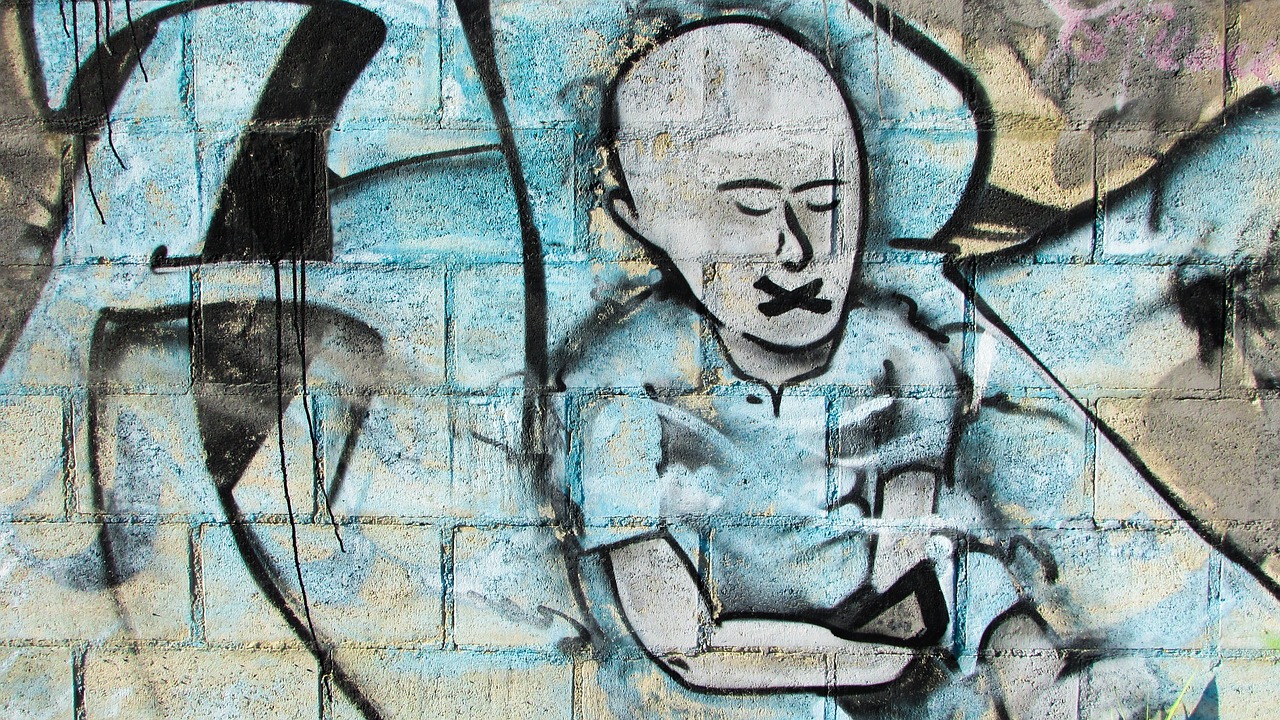
Consequences of Censorship
Censorship is like a double-edged sword; it can protect society from harmful content, but it can also stifle creativity and suppress dissenting voices. When we start putting the brakes on free expression, we run the risk of creating a culture where ideas are stifled and innovation is hindered. Imagine a garden where only certain flowers are allowed to bloom—eventually, the garden becomes dull and lifeless. This is precisely what happens when censorship takes root in society.
One of the most immediate consequences of censorship is the stifling of dissent. When individuals feel that their opinions could lead to punishment or social ostracism, they are less likely to speak out. This creates an environment where only the dominant narratives prevail, leading to a homogenized culture that lacks the diversity of thought necessary for a vibrant society. In democratic societies, this can undermine the very principles of freedom and equality that such systems are built upon.
Moreover, censorship can have a chilling effect on innovation and creativity. Think about the great artists, writers, and thinkers throughout history—many of them challenged the status quo. If censorship had been more prevalent in their times, we might have never experienced the works of Shakespeare, Orwell, or even modern-day innovators in technology and art. By limiting access to information and ideas, we risk creating a stagnant intellectual environment where new ideas struggle to break through.
Additionally, censorship can lead to a misinformed public. When access to information is restricted, individuals are left in the dark, unable to make informed decisions about their lives, communities, and governments. This lack of transparency can breed distrust in institutions and create a divide between the government and the people it serves. A well-informed citizenry is essential for a functioning democracy, and censorship directly undermines this foundational element.
The consequences of censorship extend beyond the individual to affect society as a whole. It can create a culture of fear, where people are hesitant to express their thoughts, leading to a vicious cycle of silence and repression. In extreme cases, this can escalate to widespread human rights violations, as governments may use censorship as a tool to suppress opposition and maintain control. A society that cannot freely express its grievances is a society at risk of falling into tyranny.
In summary, while censorship may be justified under certain circumstances, its consequences are far-reaching and often detrimental. The challenge lies in finding a balance between protecting society and ensuring that freedom of expression is not compromised. The question remains: how can we create a world where ideas can flourish without the fear of retribution? Only by addressing these consequences can we hope to foster an environment where creativity, dissent, and knowledge thrive.
- What is censorship? Censorship is the suppression of speech, public communication, or other information that may be considered objectionable, harmful, or sensitive by authorities.
- Why do governments censor information? Governments may censor information for various reasons, including national security, public morality, and the desire to maintain social order.
- How does censorship affect free speech? Censorship restricts free speech by limiting access to information and suppressing dissenting opinions, ultimately undermining democratic values.
- What are the long-term effects of censorship on society? Long-term effects of censorship can include a less informed public, reduced innovation, and a culture of fear that stifles creativity and dissent.
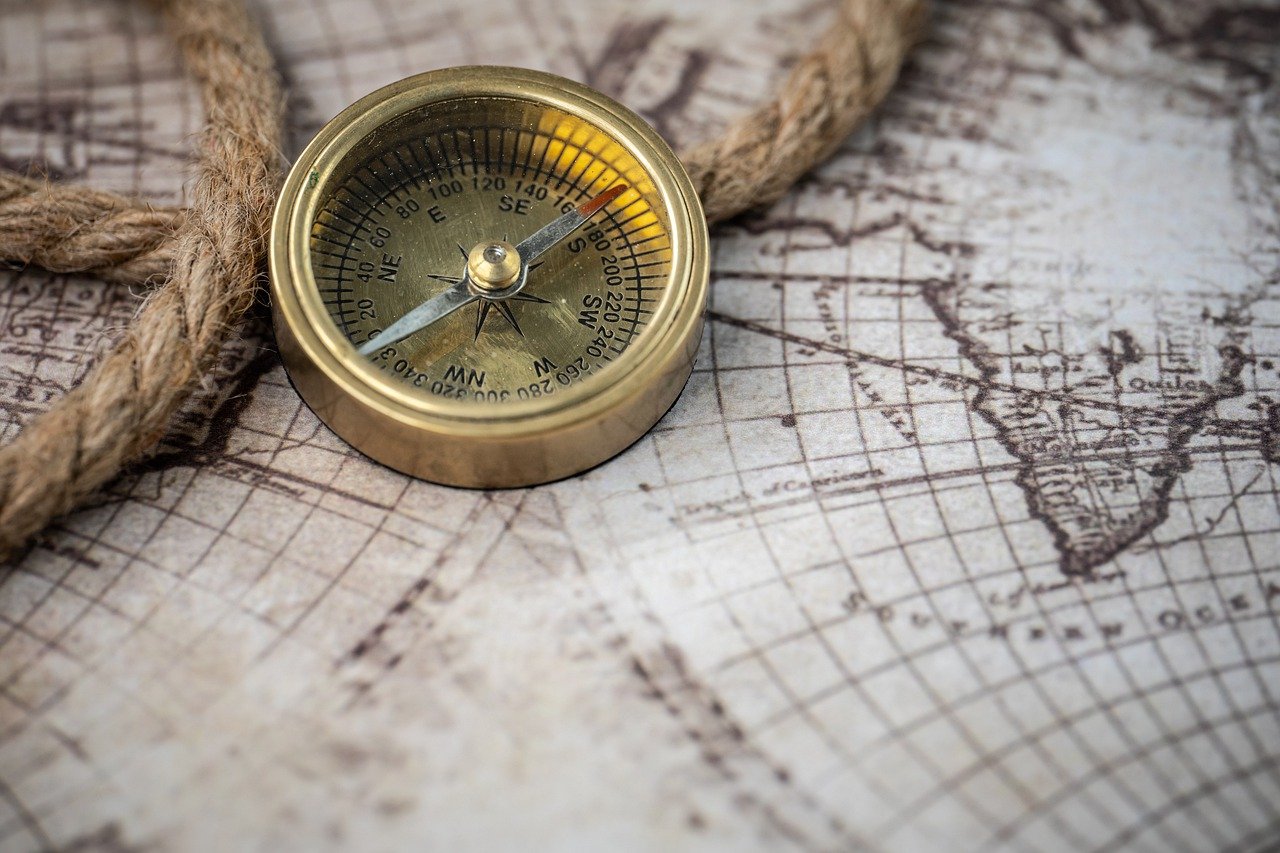
Philosophical Perspectives on Free Speech
The concept of free speech has been a cornerstone of democratic societies, yet its interpretation varies dramatically across different philosophical frameworks. Each perspective offers unique insights into the implications of censorship and the value of open discourse. For instance, consider how a utilitarian approach evaluates free speech based on the outcomes it produces for society. Utilitarianism, a philosophy that champions actions promoting the greatest happiness for the greatest number, raises the question: does limiting speech truly serve the collective good? This perspective often leads to a nuanced debate where the benefits of censorship, such as maintaining social harmony or preventing harm, are weighed against the potential suppression of individual expression and innovation.
On the other hand, libertarianism presents a stark contrast by prioritizing individual rights above all else. Libertarians argue that the government should have minimal involvement in personal freedoms, including speech. They contend that any form of censorship is an infringement on personal liberty, and that individuals should have the autonomy to decide what information they consume. This philosophy posits that free speech is not merely a privilege but a fundamental human right, essential for the flourishing of a free society. The libertarian viewpoint challenges the very foundations of censorship, proposing that a marketplace of ideas—where all voices are heard—ultimately leads to a more informed and resilient populace.
Additionally, the philosophical debate surrounding free speech often touches on the notion of moral responsibility. Some argue that with the freedom to speak comes a duty to consider the impact of one's words on others. This perspective introduces a layer of complexity, suggesting that while individuals should be free to express themselves, they must also navigate the ethical implications of their speech. This duality raises questions about the limits of expression: should hate speech or misinformation be censored in the interest of public safety and morality? The tension between protecting free speech and safeguarding society from harm is a recurring theme in philosophical discussions.
In summary, the philosophical perspectives on free speech reveal a rich tapestry of ideas that inform the ongoing debate about censorship. Each ideology—whether utilitarian, libertarian, or moralist—offers valuable insights into the implications of restricting expression. Understanding these perspectives is crucial for navigating the complex landscape of internet censorship and its impact on society.
- What is the main argument for free speech?
Free speech is often defended as a fundamental human right that promotes individual autonomy and societal progress. - How do utilitarians justify censorship?
Utilitarians may argue that censorship can be justified if it leads to greater overall happiness or prevents harm to society. - What role do libertarians play in the free speech debate?
Libertarians advocate for minimal government intervention, arguing that censorship infringes on personal freedoms. - Can free speech ever be harmful?
Yes, some argue that free speech can lead to harm, particularly when it involves hate speech or misinformation.
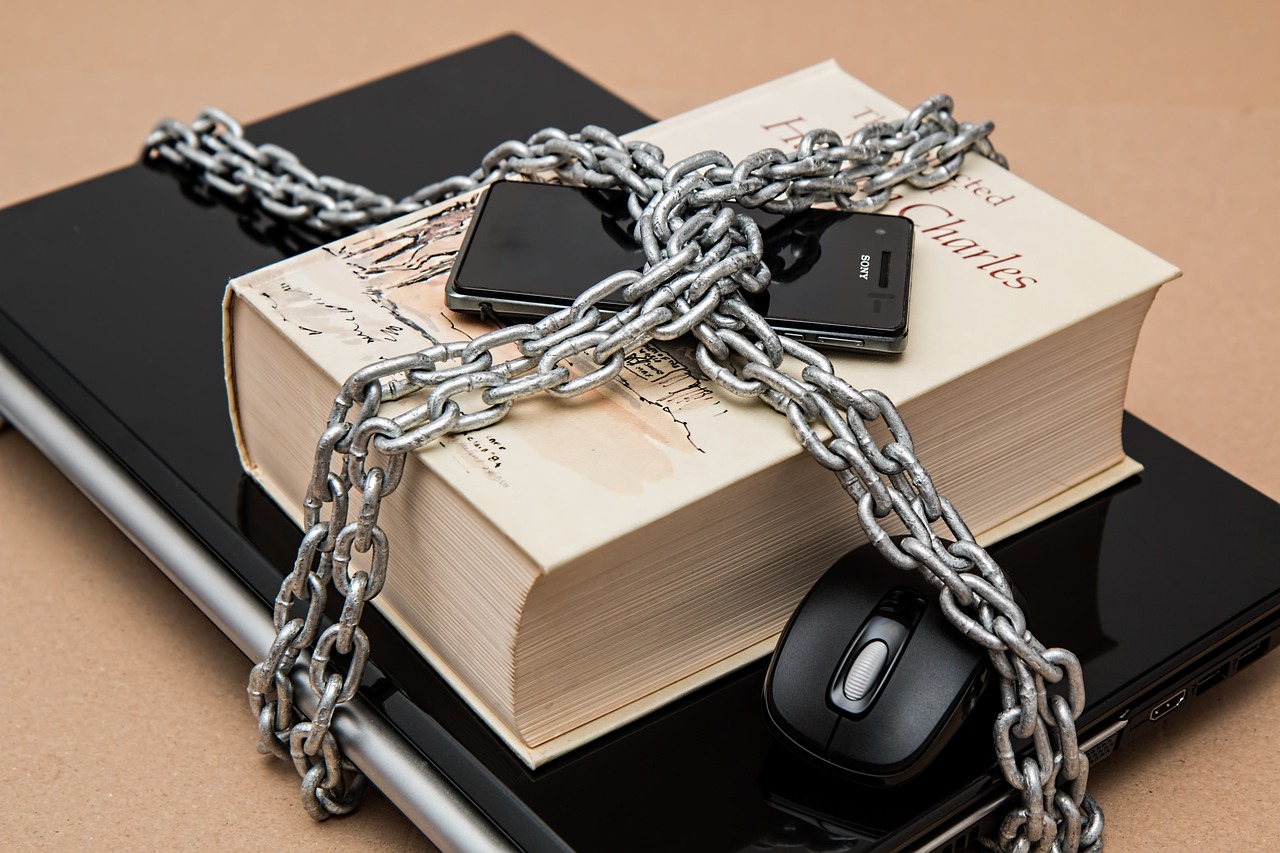
Utilitarianism and Censorship
Utilitarianism, a philosophical theory primarily associated with thinkers like Jeremy Bentham and John Stuart Mill, posits that the best actions are those that maximize overall happiness or utility. When we apply this lens to the contentious issue of censorship, we find ourselves navigating a complex landscape where the benefits of restricting certain information can be weighed against the potential harm to individual freedoms and societal progress. The crux of the matter lies in determining what constitutes "the greater good" and who gets to decide what that is.
Supporters of censorship often argue that by limiting access to certain types of information—be it hate speech, misinformation, or graphic content—they are ultimately safeguarding the well-being of society. For instance, they might contend that censoring violent or extremist content can prevent real-world harm, thereby promoting a safer environment for the majority. However, this raises a pivotal question: at what cost does this safety come? The potential for abuse is significant, as the very same mechanisms that protect society could also be wielded to stifle dissent and curb free expression.
Moreover, the utilitarian approach necessitates a careful evaluation of the outcomes of censorship. While the immediate goal may be to protect public safety, the long-term implications can be detrimental. For example, if a government censors dissenting voices under the guise of maintaining social harmony, it could lead to a culture of fear and repression, ultimately diminishing the collective happiness of the populace. This paradox highlights the need for a nuanced understanding of how censorship can disrupt the very fabric of societal progress.
To illustrate the complexities involved, consider the following table that outlines potential benefits and drawbacks of censorship through a utilitarian lens:
| Aspect | Potential Benefits | Potential Drawbacks |
|---|---|---|
| Public Safety | Reduces exposure to harmful content | May suppress legitimate discourse |
| Social Harmony | Prevents the spread of hate speech | Can lead to a homogenized viewpoint |
| Information Control | Limits misinformation and panic | Hinders access to diverse perspectives |
In essence, the utilitarian justification for censorship is a double-edged sword. While it seeks to promote the welfare of the majority, it can inadvertently lead to the marginalization of minority voices and the stifling of innovation and creativity. As we grapple with these ethical dilemmas, it becomes crucial to establish a framework that prioritizes open dialogue and critical thinking, ensuring that the quest for happiness does not come at the expense of freedom.
- What is utilitarianism? Utilitarianism is a philosophical theory that advocates for actions that maximize overall happiness or utility.
- How does utilitarianism relate to censorship? Utilitarianism evaluates censorship based on its ability to promote societal well-being, weighing the benefits against potential harms to freedom and expression.
- Can censorship ever be justified? While some argue that censorship can protect society, it is essential to consider the long-term implications and the risk of suppressing dissent.
- What are the risks of censorship? Censorship can lead to a culture of fear, hinder access to diverse perspectives, and stifle innovation and creativity.

Libertarian Views on Expression
When it comes to the idea of free expression, libertarianism stands as a staunch defender of individual rights and minimal government interference. At its core, libertarian philosophy champions the belief that every person should have the absolute freedom to express their thoughts, ideas, and opinions without any form of censorship or restriction imposed by authorities. Imagine a world where every voice is heard and every opinion is valued—this is the vision that libertarians strive for. They argue that the marketplace of ideas is the best mechanism for discerning truth from falsehood, much like how a bustling market thrives on competition and choice.
Libertarians often contend that censorship stifles innovation and creativity. By limiting what people can say or share, governments not only infringe on personal freedoms but also hinder the potential for societal progress. Think of it this way: when artists, writers, or even everyday individuals are restricted in their expression, the entire culture suffers. New ideas, which often come from the fringes, are silenced, and society becomes stagnant. This echoes the famous quote by John Stuart Mill, who stated that "the peculiar evil of silencing the expression of an opinion is, that it is robbing the human race." In essence, libertarians believe that the suppression of any opinion is detrimental to the collective knowledge and growth of society.
Furthermore, libertarians argue that the government should not be the arbiter of what constitutes acceptable speech. They maintain that freedom of expression is a fundamental human right that should be protected at all costs. This perspective raises important questions: Who gets to decide what is "acceptable"? What criteria are used to judge the worthiness of an idea? In a truly free society, the answer lies in the individuals themselves, not in a centralized authority. The belief is that people are capable of making their own decisions about what to consume and share, and that they should be trusted to navigate the complexities of information without paternalistic oversight.
Libertarians also highlight the importance of digital platforms as modern public squares where ideas can be exchanged freely. Social media and online forums have democratized information sharing, allowing voices from all walks of life to contribute to the conversation. However, the rise of internet censorship poses a significant threat to this newfound freedom. As governments and corporations increasingly regulate online content, the libertarian call for unfettered access to information becomes even more critical. They argue that any attempt to censor or restrict online expression is not just an infringement on individual rights, but also a dangerous precedent that could lead to broader authoritarian measures.
In conclusion, libertarian views on expression advocate for a society where individuals are free to express themselves without fear of censorship. This philosophy not only champions personal liberties but also promotes a vibrant, dynamic culture where ideas can thrive. As we navigate the complex landscape of internet censorship, the libertarian perspective serves as a crucial reminder of the value of free expression in fostering innovation, creativity, and ultimately, a more enlightened society.
- What is the main belief of libertarians regarding free speech?
Libertarians believe that individuals should have the absolute right to express themselves without government interference. - How does censorship affect society according to libertarians?
Censorship is seen as a hindrance to innovation and creativity, leading to a stagnant culture. - Why do libertarians oppose government regulation of speech?
They argue that the government should not decide what constitutes acceptable speech, as it undermines personal freedoms. - What role do digital platforms play in free expression?
Digital platforms are viewed as modern public squares that facilitate the free exchange of ideas, which should remain free from censorship.
Frequently Asked Questions
- What is internet censorship?
Internet censorship refers to the control or suppression of what can be accessed, published, or viewed on the internet. It's like putting up barriers to limit the flow of information, often justified by authorities for reasons such as national security or public morality.
- Why do governments censor the internet?
Governments may censor the internet to maintain social order, protect citizens from harmful content, or uphold national security. However, this often raises concerns about the infringement of individual freedoms and the potential abuse of power.
- What are the ethical dilemmas surrounding censorship?
Censorship presents a tug-of-war between protecting society and preserving individual freedoms. The ethical dilemma lies in finding the right balance—how much should we restrict access to information to ensure safety without compromising free expression?
- How does censorship affect democracy?
Censorship can undermine democracy by stifling dissent and limiting public discourse. When people cannot express their views freely, it creates an environment where only certain narratives prevail, which can lead to a less informed and engaged citizenry.
- What justifications are commonly used for censorship?
Common justifications for censorship include national security concerns, protecting public morality, and preventing the spread of misinformation. However, each justification carries its own philosophical implications and can be contentious in practice.
- How does utilitarianism view censorship?
Utilitarianism suggests that actions should maximize overall happiness. In terms of censorship, this perspective raises questions about whether restricting certain information truly benefits society or if it merely serves the interests of a few.
- What are libertarian views on free speech?
Libertarians advocate for minimal government intervention and emphasize the importance of individual freedom. They argue that censorship infringes on personal liberties and that access to information should be unrestricted to foster a truly free society.
- What are the consequences of censorship?
Censorship can lead to a range of negative consequences, including stifling innovation, suppressing dissenting voices, and limiting cultural exchange. When people can't freely share ideas, society as a whole suffers from a lack of diverse perspectives.

